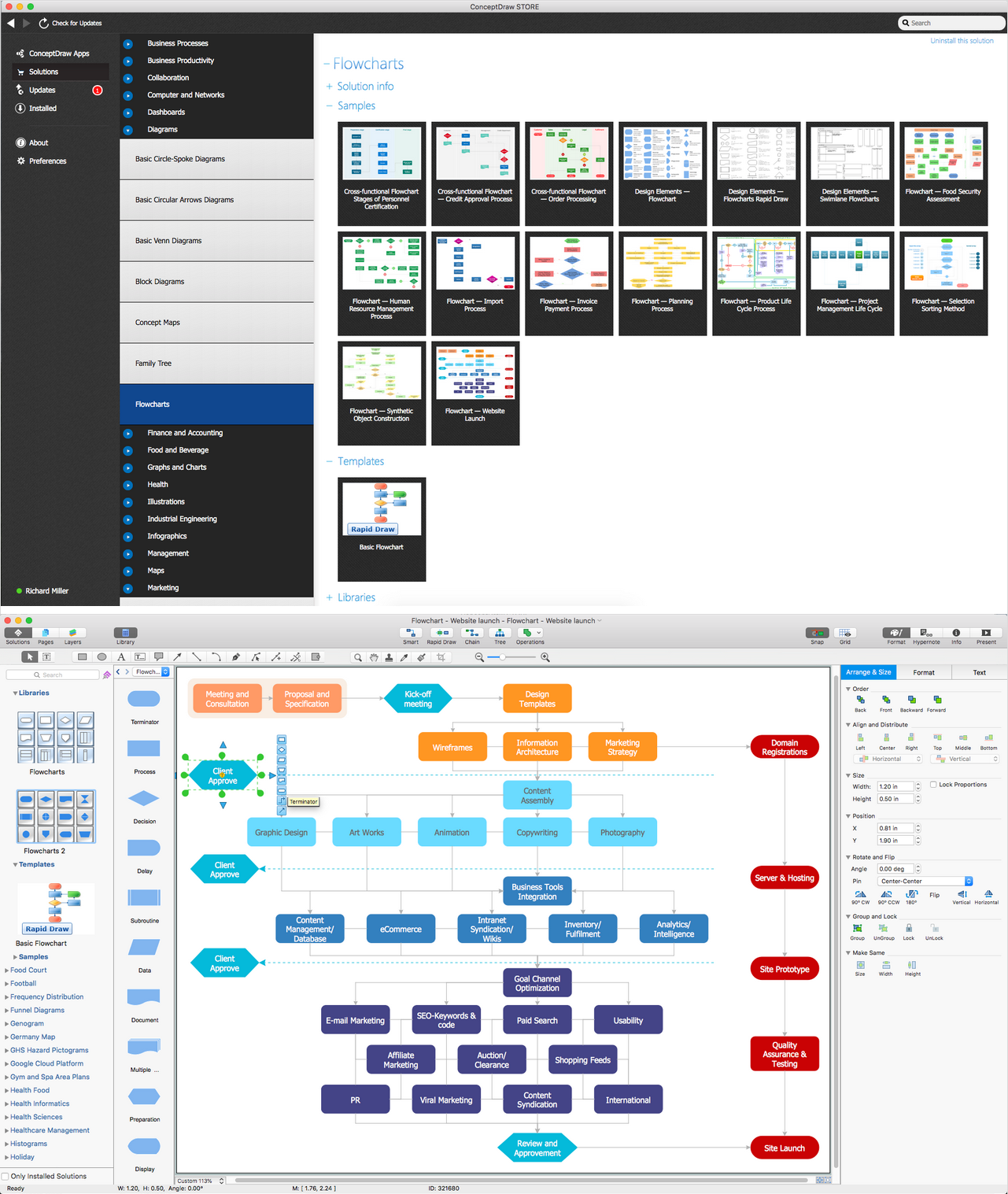Basic Flowchart Symbols and Meaning
Flowcharts are the best for visually representation the business processes and the flow of a custom-order process through various departments within an organization. ConceptDraw PRO diagramming and vector drawing software extended with Flowcharts solution offers the full set of predesigned basic flowchart symbols which are gathered at two libraries: Flowchart and Flowcharts Rapid Draw. Among them are: process, terminator, decision, data, document, display, manual loop, and many other specific symbols. The meaning for each symbol offered by ConceptDraw gives the presentation about their proposed use in professional Flowcharts for business and technical processes, software algorithms, well-developed structures of web sites, Workflow diagrams, Process flow diagram and correlation in developing on-line instructional projects or business process system. Use of ready flow chart symbols in diagrams is incredibly useful - you need simply drag desired from the libraries to your document and arrange them in required order. There are a few serious alternatives to Visio for Mac, one of them is ConceptDraw PRO. It is one of the main contender with the most similar features and capabilities.
- Basic Flowchart Symbols and Meaning | Basic Diagrams Of ...
- Basic Flowchart Symbols and Meaning | Butt weld geometry | V ...
- Mathematics Symbols | Mathematical Diagrams | Basic Flowchart ...
- Design elements - Solid geometry | Mathematics Symbols | Basic ...
- Basic Flowchart Symbols and Meaning | Picture And Name Geometry
- Design elements - Solid geometry | Basic Flowchart Symbols and ...
- Basic Flowchart Symbols and Meaning | How to Draw Geometric ...
- Mathematics Symbols | Butt weld geometry | Basic Flowchart ...
- Basic Flowchart Symbols and Meaning | Entity Relationship ...
- Basic Flowchart Symbols and Meaning | Mathematical Diagrams ...
- Basic Flowchart Symbols and Meaning | Design elements - Optics ...
- Basic Flowchart Symbols and Meaning | Scientific Symbols Chart ...
- Design elements - Solid geometry | Basic Flowchart Symbols and ...
- Mathematics Symbols | Basic Flowchart Symbols and Meaning ...
- Basic Flowchart Symbols and Meaning | Mathematics Symbols ...
- Mathematical Diagrams | Basic Flowchart Symbols and Meaning ...
- How to Draw Geometric Shapes in ConceptDraw PRO | Basic ...
- Mathematics | Types of Welding in Flowchart | Basic Flowchart ...
- Scientific Symbols Chart | Basic Flowchart Symbols and Meaning ...
- Mathematics Symbols | Basic Flowchart Symbols and Meaning ...
